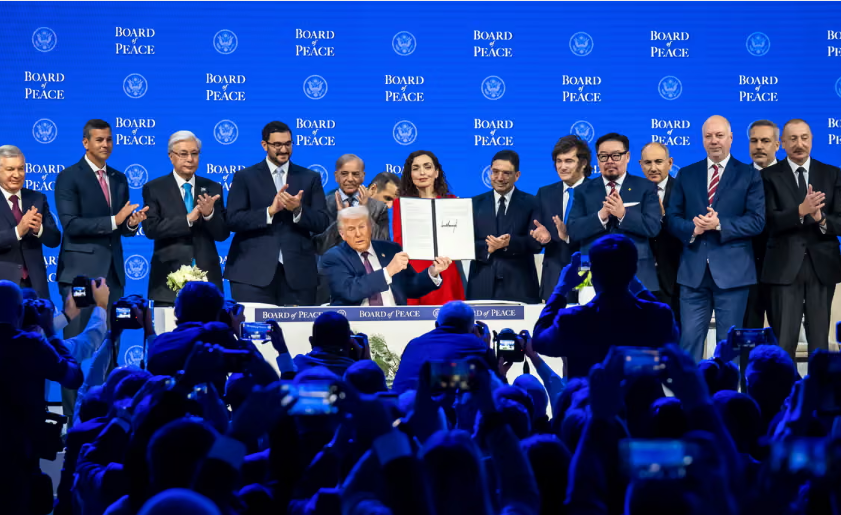WEST SUSPECTS CHINA MAY SECURE MORE FOREIGN NAVAL BASES
The West suspects China’s recent pact with the Solomon Islands smacks of the communist nation’s ambition to have a military foothold there as part of a larger plan to challenge the American domination of the Pacific and the Indian hold over the Indian Ocean region.
The Americans think Solomon Islands is a wake-up call. The Economist reports that China “is thought to have approached at least five potential host countries” to berth its military ships.
It is a case of the pot calling the kettle black but China has got the west really worried. The Americans maintain scores of military bases in over 40 countries. The French and the British have foreign overseas outposts in Asia, Africa and Europe. In contrast, China has only one, a naval base, Djibouti on the Horn of Africa.
For decades, China was worried about the multiple challenges it faces from the seas. Taiwan is certainly one. China has marine disputes with most countries that share the seas. There are island chains that are not friendly with China. The entire region from the South China Sea to the Pacific has straits that are narrow and are a concern to China because much of its outgoing and incoming trade has to pass through them. In times of confrontation, the straits become a security risk.
China will have to stretch its maritime resources if it wants to either warn some countries or protect its trade interests. Its mainland shores are quite far from the Pacific and the Indian Ocean Region and on to West Asia and Europe. So, external military bases are the answer.
The Economist says: “China calls America ‘imperialist’ for keeping foreign bases, while insisting that its own military expansion is peaceful, nothing to worry about and only natural for a rising power. It needs a navy equal to the task of defending its overseas investments, shipping routes and citizens who live or work abroad.”
However, China has failed to convince its neighbours of its peaceful intent. For, it has built “landing strips and missile batteries to assert its claims to disputed reefs in the South China Sea”, “reserves the right to seize the democratic island of Taiwan by force” and it has an “open ambition to control more territory than it currently does suggests a darker side to this maritime diplomacy”.
Most of all, it wants to drive the United States away from what it calls its “backyard” so that its naval fleet has an unhindered sway over the Indo-Pacific.
Though China has one military base abroad, it has been in talks with various countries in the Indian Ocean Region and the Pacific, including Indonesia, Singapore, Cambodia, Thailand, Myanmar, Sri Lanka, Seychelles, Pakistan, Kenya, Tanzania, Namibia and Angola. There are said to be plans afoot to get a toe hold in the ports of these countries to monitor shipping in the Indian Ocean and keep transiting naval fleets of other countries. These ports, seen together, are called the String of Pearls or what China calls the maritime Silk Route.
However, the media reports say these ports are “fine for refuelling, replenishing supplies and repairing ships in peacetime…but it also needs facilities in which to station uniformed personnel and store weapons and equipment”. According to The Economist, “in the past three years alone, it has signed a secret deal to use a Cambodian navy base, tried to negotiate its own naval outpost in Equatorial Guinea and secretly begun building a military facility inside a Chinese-run port in the United Arab Emirates (UAE), say American officials”.
Analysts suggest China took the Solomon Islands deal seriously after activation of QUAD, the formation of AUKUS and, importantly, the US and the UK deciding to help Australia acquire nuclear submarines. China sees this as a direct threat to its self-claimed control over the South China Sea region.
China says the Solomons pact is much in contrast to the “covert operations of certain countries, which have put together military blocs, stimulated an arms race and exacerbated the risk of nuclear proliferation”.
However, for all its worries, the West realises China has to come a long way before it can challenge it on the high seas. “For all China’s efforts to expand abroad, the results so far have been mixed. That is partly the result of history. America, Britain and a handful of other military powers have a global network of bases that have existed for decades and are mostly legacies of empire, the second world war and the cold war. China has started from scratch, and establishing even a small new base abroad is costly and time-consuming.”
The fact remains that if China eventually has plans to establish its naval presence in the Solomon Islands – in the form of “the deployment of Chinese troops and visits by Chinese ships” – that will give “China a military presence not just near important shipping routes, but between America and its Pacific allies, Australia and New Zealand”.













